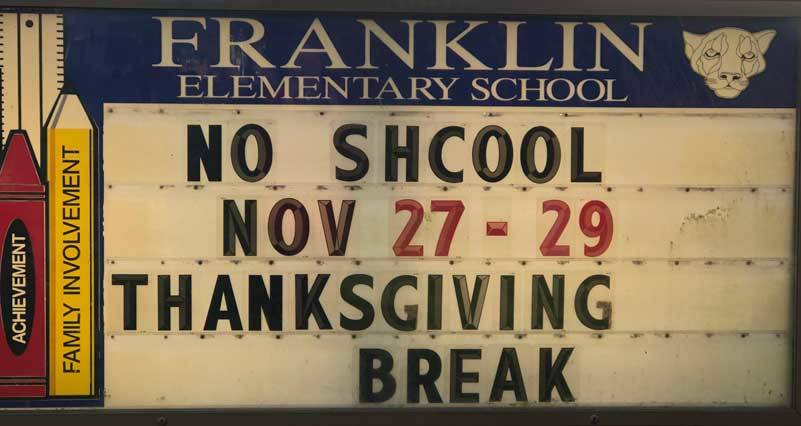By Morf Morford
Tacoma Daily Index
Opportunity is missed by most people because it is dressed in overalls and looks like work. – Thomas Edison
Whether you have school age kids in your life or not, the advent of the school year impacts us all.
In fact, what does “school age” even mean now?
I know people of all ages who go to school for all kinds of reasons.
And I know people who study and research all kinds of things and barely step into a classroom.
But for most of us, September is a time of preparing for, if not attending school.
Back to school sales urge us to buy all kinds of clothes, equipment and implements of learning, and the news is full of all kinds of stories of how different this school year will be.
Yes, in many ways this school year will be like no other, but in some basic ways, it won’t be so different after all.
Kids will still go to school, they will still need basic things like backpacks and notebooks and they will still need to get there. And get home.
And, as always, any student’s experience (and memory) of school will have far more to do with their attitude toward school than anything else.
And like everything else, attitude begins at home.
As John Dewey put it, “Education is not preparation for life; education is life itself.”
School is just structured learning.
We are, or at least should be, learning all the time.
School is just how we as a society organize the learning of some of what we have decided are life’s essentials.
What we consider “essential” at school, as in our economy, shifts from time to time and is different in different places.
School, at any and every level, is where we not only learn things, but share the learning experience with others.
We learn, at least in theory, how to “work well with others”.
We might even learn something about how we absorb, react to, digest and incorporate new, and sometimes challenging, information.
And we are likely, in a classroom (or larger school setting) to encounter some who hold very different views or have had very different life experiences.
Whether it is homeless students (at last count about one thousand in Tacoma Public Schools) or mask mandates or conflicts within (or outside of) the classroom, schools can be a setting for how we learn about or encounter life’s difficulties.
And if you think school is a challenge, just wait.
As Bill Gates put it, “If you think your teachers are tough, wait ‘til you get a boss”.
And you just might get a glimpse every now and then of how much there is to learn – about virtually every topic.
No matter how much you learn, about anything from volcanoes to pandemics to world history, there are those who know more than you do, and entire bodies of knowledge that are likely to challenge what you have already learned.
You cannot learn too much.
As Oscar Wilde summed it up, “You can never be overdressed or overeducated”.
And, of course, not everything can be learned in a classroom.
As Haruki Murakami put it, “The most important thing we learn at school is that the most important things can’t be learned at school”.
And years of school, even from schools with impressive names, will not necessarily make any one of us intelligent, let alone wise, decent, reliable or compassionate.
Or good friends.
As some of us know from experience, and as author John Green put it, “Every year, many, many stupid people graduate from college. And if they can do it, so can you”.
Knowledge and skills are by far the best investment you can ever make.
As Ben Franklin put it, “If a man empties his purse into his head, no man can take it way from him. An investment in knowledge always pays the best interest”.
And as blues guitarist B.B King put it, “The beautiful thing about learning is that no one can take it away from you”.
School is perhaps most of all, a process of accumulation.
We learn processes, principles, facts and foundations.
We learn (for the most part) what works and what doesn’t.
We witness or participate in interactions with others, and perhaps even learn that what were once certainties are now discredited theories and what once seemed like crazy ideas (like quarks, black holes and parallel universes) strike us as not so loony after all.
I encourage you, even if you are “done” with school, to take that class on something you know nothing about.
That’s my biggest regret of my academic career – I took classes in subjects I was already interested in.
Those subjects that (for whatever reason) did not appeal to me, would have to wait for many years before life demanded that I catch up on them.
Mark Twain may have been referring to this when he wrote, “Twenty years from now you will be more disappointed by the things that you didn’t do than by the ones you did do”.
Education, as a teacher friend of mine once put it, is a “ticket” – an admission to a continuing conversation where we listen, are challenged and just maybe keep on learning.
And, as in books, articles or conversations, my favorite part of school is the interesting people we meet along the way.





